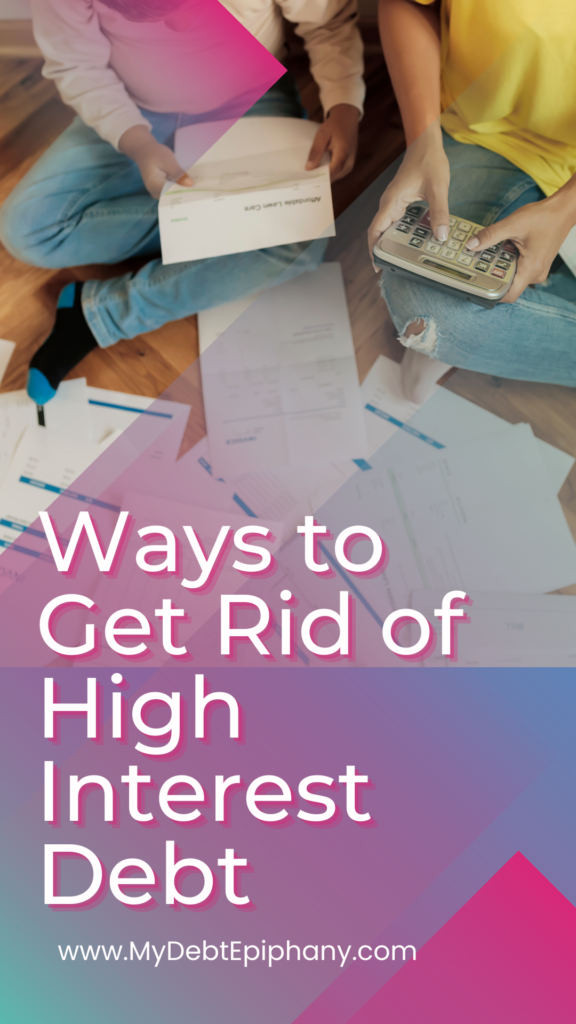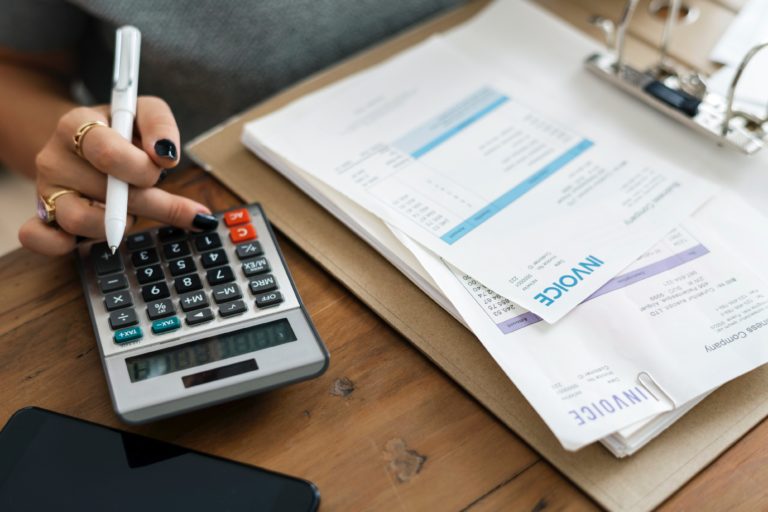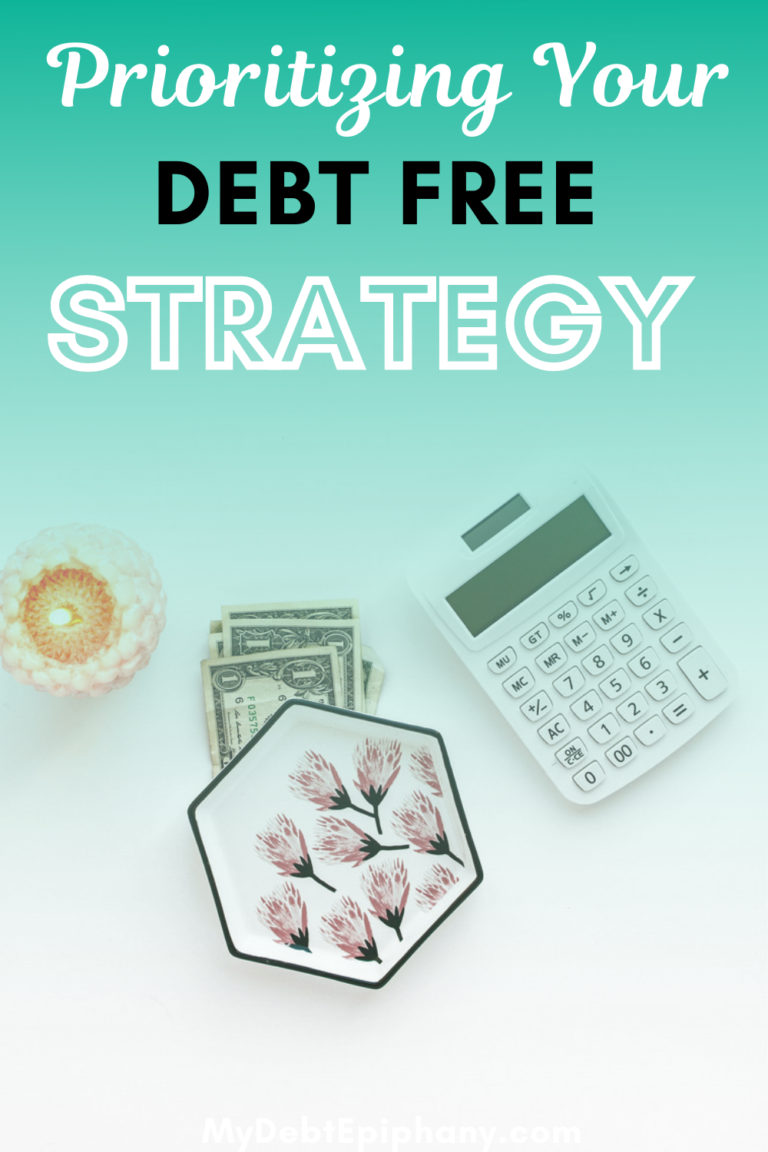How to Pay Off High-Interest Debt
Dealing with high-interest debt? Debt really can be a hassle to deal with especially if you’re actively trying to pay it off.
Most experts recommend you pay off high-interest debt sooner rather than later. My personal debt repayment journey has involved all sorts of debt ranging from credit cards and personal loans to student loans and car loans.
When you pay off your debt, it instantly frees up money in your budget to use for other purposes. Paying off high-interest debt early will also save you money in the long run since interest costs can add up.
Table of Contents
What Exactly Is High-Interest Debt?
Determining what is high-interest debt is pretty subjective since ‘high interest’ can mean something different for each person. There are certain types of debt that are known to have a higher interest rate than others.
Some debts that tend to have be lower interest include student loan and mortgage debt. Higher interest debt could be credit card debt or even a personal loan.
The interest rate on your debt also depends on your creditworthiness at the time when you took out the loan. For example, if you get a car loan and your credit score is bad, you could be paying 7% to 10%. Compare this to a car loan with a rate of 2% or 3% if you have excellent credit.
Some say high-interest debt is anything over 5% or 6%. You’ll need to set your own benchmarks for what is high-interest debt and run some numbers to see how much the debt is costing you.
Budget For Debt Payoff
Paying off debt is a strategic effort that you need to play for. Assess your current spending to see exactly where your money is going. Then, you can determine how much money you can realistically put on your debt each month.
To pay off high-interest debt faster and save money, you’ll need to pay more than the minimum payment each month. Doing this helps you keep up with interest charges and get ahead.
Whether you need to set a specific budget category for debt payments or send money to your accounts as soon as you get paid, be sure to budget for debt payoff and plan to be intentional with your payoff strategy.
Related: The 50-30-20 Budget Plan: What Is It and How Does It Work?
Why and How to Create an Annual Budget
Consolidate Your Debt
Consolidating your debt allows you to combine multiple debt payments into one. Instead of paying multiple accounts at different interest rates, you can make just one payment each month.
If you have multiple credit cards, it may make sense to consolidate this debt with a low-interest personal loan. Credit card interest rates can be high up to 25% so a consolidation loan can simplify your debt and save you money in the long run.
Refinance or Ask For a Lower Interest Rate
Refinancing often gets confused with consolidation but it’s a very different process. With refinancing, you get a completely new loan with a lower interest rate.
You’ll have to go through all the application steps as you did originally and get another hard credit inquiry. However, you may be able to save hundreds to thousands of dollars with a lower interest rate.
Always make sure you get an accurate quote or estimate on the new loan terms before you agree to submit an application to refinance. Also, with students loans keep in mind that it’s not common to refinance federal loans since you’d lose out on benefits such as determent, forbearance, and loan forgiveness.
Private student loans on the other hand have higher interest rates and could be refinanced to help you pay off high-interest debt quicker.
Another option if you don’t want to refinance is to simply ask your creditor to lower your interest rate. Many credit card companies might do this willingly if they see that you’ve been making payments on time. Plus, there’s not much to lose by simply asking.
Set Up Automatic Payments
Sometimes, setting up automatic payments with lenders and creditors can help you with paying off high-interest debt. With student loans and some personal loans, companies will give you a small interest rate reduction if you agree to set up automatic payments.
Every little bit truly counts when it comes to being able to pay off high-interest debt. Also, setting up automatic payments helps you avoid late or missed payments which could also result in fees or penalties.
Pay Off Smaller Debt First
When you have high-interest debt, consider paying off smaller debt first. This is a great way to ease into a debt payoff journey and clear away smaller balances so you can see some quick progress.
Paying off smaller balances is great for your level of motivation. Many of us know that staying motivated during debt payoff can be challenging. Commonly referred to as the snowball method, making small and consistent payments on your debt allows you to visualize your success at the start of your efforts.
This makes it much easier to see yourself paying off the larger balances.
Related: Prioritizing Your Debt-Free Strategy
What Debt Should You Take Care of First?
Earn Extra Money
Earning extra money was probably the best thing I did to pay off high-interest debt faster. I ended up paying off my high interest car loan in about 14 months. This aggressive debt payoff was thanks in large part to my ability to earn extra money on the side.
I started freelance writing and earned anywhere from $400 to $800 during the first few months. Then, I started earning $1,5000 to $2,500 per month on average during that time.
You can certainly budget effectively and find ways to lower your costs. However, I’d also recommend determining what your interest are and exploring areas where you could be earning extra money to pay off high-interest debt.
Related: Finding the Right Side Hustle For You
20 Ways to Make Extra Money Today
Side Hustles Explored: Simple, Low Effort Ways to Make Money
Side Hustles Explored: How to Become a Freelance Writer
Side Hustles Explored: How to Become a Virtual Assistant
Stop Worrying About Money and Regain Control

Join 5,000+ others to get access to free printables to help you manage your monthly bills, reduce expenses, pay off debt, and more. Receive just two emails per month with exclusive content to help you on your journey.





